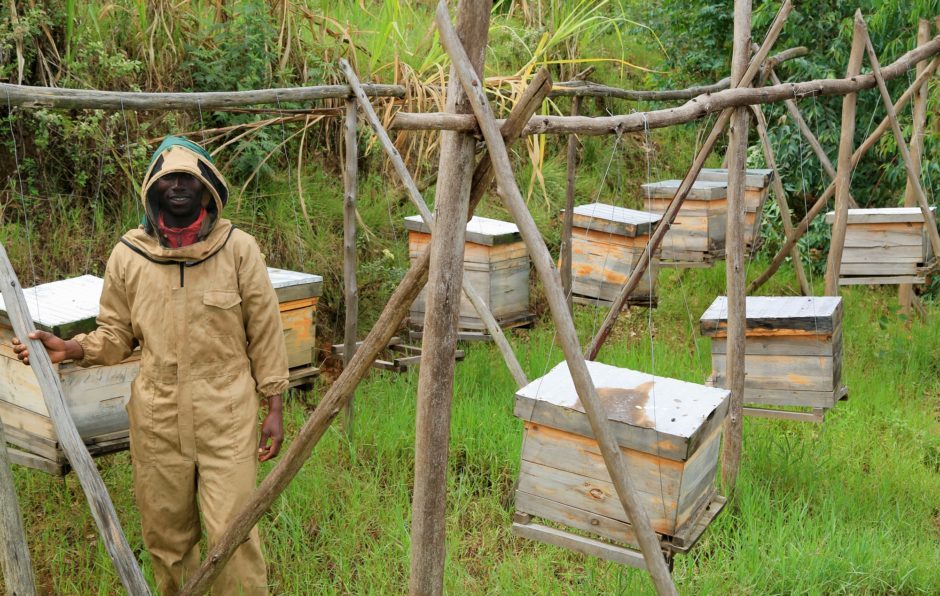
The Far Reaching Benefits Of Bee-Keeping
Rwanda hosted the 5th All-Africa International Honey Industry Exhibition in September under the theme ‘Driving Socio-Economic Growth in Africa: The Role of Commercial Bee-keeping’. Statistics show the demand for honey is increasing and in Rwanda, there is huge potential to capitalize on this market, particularly since Rwanda was recently registered as eligible to export honey to the EU. The National Agricultural Export Development Board (NAEB) is encouraging honey production for its economic and environmental benefits. Currently, there are around 35,000 bee-keepers and 90,000 modern beehives, and a further 200,000 traditional hives throughout the country.
With such a high density of people living around Akagera National Park (an increasing population of more than 300,000 people), it is important that every livelihood opportunity is explored. Bee-keeping, with its low start-up costs, low maintenance requirements, and low use of land, combined with a high-value product, offers an ideal means for rural and often poor families to supplement their income. In the case of Akagera National Park, it is seen as having the potential to not only supplement the incomes of local farmers living on the boundary but also dissuade them from engaging in poaching in the park and protect the environment bees need in order to produce honey.
COPROMA is a bee-keeping cooperative on the boundary of Akagera National Park operating since 2009. In 2014 the cooperative received a boost from the park management, Akagera Management Company (AMC), for training support, modern hives, and a secured area in the park buffer zone to place their beehives. The vision of AMC is to promote beekeeping by community members all around the park. AMC has since added three more cooperatives to the growing portfolio; KOPANYAKA, UMURAGE, and KORA NEZA. Around 1.7 tonnes of honey was harvested in 2015 across the four cooperatives, and the target is to reach three tonnes in 2016.
Encouraging honey production has far-reaching benefits. As well as the economic value, in order to produce honey bees need flowering trees and plants so encouraging honey production promotes the growth and protection of natural areas. Honey is one of nature’s wonders; most commonly used as a sweetener, it is also reputed to have several health benefits including anti-biotic and anti-fungal properties and as a source of vitamins and minerals which help to boost immunity. In addition to honey, bees produce wax which also has applications in the food, cosmetics, and pharmaceutical industries.
Our survival is dependent on bees; we rely on them to pollinate our crops. Yet, on a worldwide scale, honeybees have dramatically declined in recent years mostly due to pesticides used in Agriculture, and climate change. Do your part and become bee-friendly; attract bees in your garden through planting native flowers and flowering fruit and vegetables, provide a shallow source of water where bees are able to land to drink, and avoid using pesticides in your garden.
For more information:
Akagera Management Company
akagera@african-parks.org
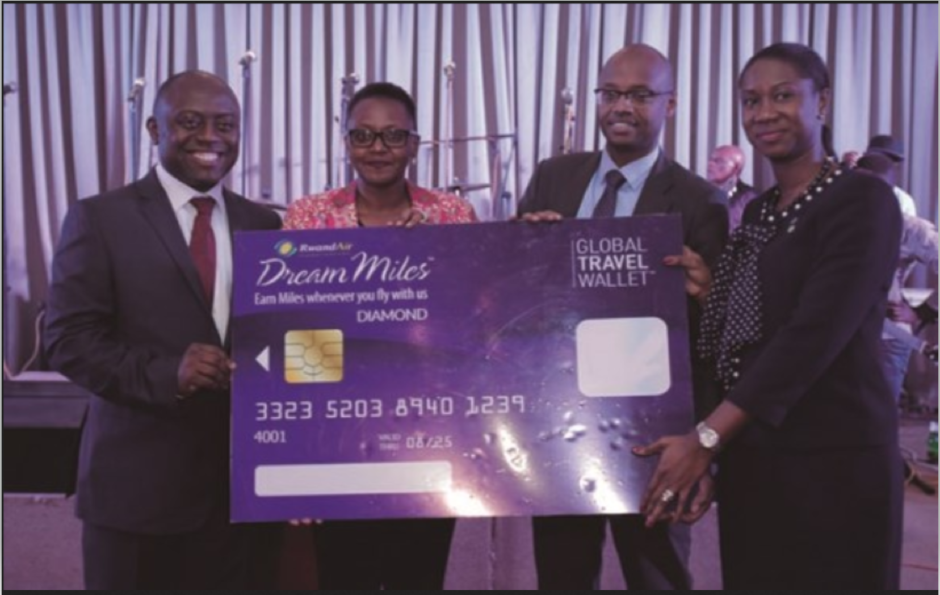
Rwanda Air Dream-miles Launches Global Travel Wallet
RwandAir DreamMiles Loyalty Program adds a reloadable Visa Prepaid Card Feature to its membership cards to facilitate Payments and Currency Exchange on the Go!
The new RwandAir DreamMiles VISA GlobalTravelWallet card is a “must-have” for anyone coming into Rwanda or traveling out of Rwanda on RwandAir. You can join by enrolling inflight, in-store, or online and once you receive it, your travel experience changes forever! This product demonstrates RwandAir’s commitment to rewarding its loyal customers and its willingness to reach out to the wider community.
RwandAir DreamMiles and Card Programs International (CPI), a card program management and payment product innovation company, have partnered with Visa and Ecobank, the leading Pan African Bank, to launch the new RwandAir DreamMiles VISA GlobalTravelWallet™ card. The card includes a reloadable prepaid Visa account feature that lets travelers earn DreamMiles as they shop at Visa merchants worldwide – a first of its kind in Sub-Saharan Africa.
RwandAir DreamMiles members in Rwanda will begin receiving their new DreamMiles card with GlobalTravelWallet™ in Q4, 2015. The roll-out of cards to RwandAir DreamMiles members in other countries will take place shortly after. RwandAir DreamMiles members already enjoy industry-recognized benefits such as reward miles on every flight, lounge access, extra baggage allowance, guaranteed seating options, priority check-in and boarding, and more. Members can now enjoy items from specially selected merchants online, book hotels at reduced prices, and enjoy customer service from whichever time zone you may travel to via www.globaltravelwallet.com.
Members will also start to earn and redeem miles with RwandAir partner airlines, and non-airline partners in the near future. The new GlobalTravelWallet™ feature adds payment functionality and other member benefits to the RwandAir DreamMiles VISA GlobalTravelWallet™ card. This includes the revolutionary miles to money functionality allowing cardholders to convert their miles to cash using the new UniversalRedemption™ capability from CPI, as well as bonus miles for RwandAir ticket purchases and everyday purchases.
In 2016, RwandAir DreamMiles members will be able to download the GlobalTravelWallet™ mobile application, available for iOS and Android users. Through the app, users can access their account balance and transaction history, transfer money to other DreamMiles members with an activated GlobalTravelWallet™ account, review where to load options, and report a card lost or stolen.
Jean-Paul Nyirubutama, CEO/ COO of RwandAir, said, “The new RwandAir Dream Miles loyalty program provides features and benefits that enhance the value to its members. The new innovative RwandAir DreamMiles VISA GlobalTravelWallet™ card combines the functionality of a reloadable payment card with the benefits of DreamMiles membership in a single piece of plastic, a first in loyalty and travels prepaid payments in Sub- Saharan Africa.”
RwandAir DreamMiles partnered with CPI to develop the product and handle the management of the program, utilizing CPI’s proprietary prepaid currency platform and global experience pioneering similar products. “When we partnered with RwandAir, we were confident that we were working with a partner whose mantra is to deliver world-class service to its customers, an ethos we firmly believe in and standby,” said Segun Oni, Chief Executive Officer, Card Programs International, adding “We have an alignment on the values of meeting our customers’ needs.”
The new RwandAir DreamMiles VISA GlobalTravelWallet™ card is issued in collaboration with Ecobank. Mareme Ndiaye, Managing Director of Ecobank Rwanda, said, “This is a highly innovative product and the first of its kind in the region. Ecobank is proud to assist RwandAir in developing a multi-functional card, which vividly demonstrates Ecobank’s ground-breaking product development capabilities.”
To learn more about the new RwandAir DreamMiles VISA GlobalTravelWallet™ program, complete list of features and benefits, including terms and conditions, please visit: www.rwandair.com or www.globaltravelwallet.com/rwanda
Read MoreShe has her mother’s gift for cooking
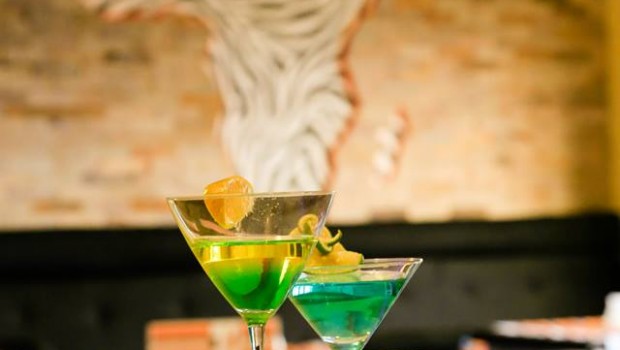 Marie-Michelle Rukohoza (Michou) est une jeune burundaise qui a hérité du talent de sa maman (Mama Mado ‘au coin d’Ixelles’). “we mutoto uko na mukono wa Mama yako”
Marie-Michelle Rukohoza (Michou) est une jeune burundaise qui a hérité du talent de sa maman (Mama Mado ‘au coin d’Ixelles’). “we mutoto uko na mukono wa Mama yako”
Michou est une jeune femme mariée et maman de trois enfants…
Elle et son mari avaient le projet de rentrer au Burundi mais bien plus tard lorsque qu’ils seraient à l’aise professionnellement et financièrement mais un évènement grave a précipité son retour dans le pays natal de sa maman. Après 21 ans passé en Belgique, elle décide alors, non sans peur de l’inconnu, de rentrer au Burundi en 2011, sans projet et sans moyens financiers.
A son arrivée, Michou a vécu ses premiers mois à Bujumbura en mode ‘vacances’ mais elle a tout de suite pris le chemin qui se traçait devant elle sans le savoir…
Sa vie active a commencé lorsque le gérant de ‘ Au Coin d’Ixelles’ est parti et elle s’est retrouvée très vite gestionnaire du restaurant. Au bout de 2ans et demi, Michou a l’impression d’avoir fait le tour et n’a qu’une envie, c’est de retourner vivre avec son mari et ses enfants à Bruxelles où elle est née. C’est sur les conseils de sa famille et de sa meilleure amie qu’elle décide de s’accrocher, de rester et d’ouvrir son propre restaurant !
Après plusieurs mois de recherche et elle finit par trouver l’endroit en plein centre-ville, pour cela elle est obligée de s’associer avec l’ancienne gérante qui a loué l’endroit jusqu’en 2017. Qu’à cela ne tienne Michou accepte! Avec l’aide d’un architecte d’intérieur burundais, Michou rénove son restaurant et y met des couleurs chaudes et chaleureuses, y installe les fauteuils et crée son coin ‘lounge’, les tables et les nappes (gitenge) son coin ‘resto’ est enfin prêt! La terrasse et le bar passent au relooking également ! Le Paprika Restaurant Lounge Bar est enfin prêt…
Dès l’ouverture du restaurant, les clients affluents, curieux et très critiques. Michou prend ces critiques positivement et améliore le service et la qualité ses plats. La spécialité de Michou est le ‘Chop Chop’ (viande de chèvre grillée) mais elle cuisine également tous les plats qui sont présentés sur son menu. Lorsque l’on demande à Michou comment elle pourrait définir la cuisine Mama Mado (Au coin d’Ixelles), celle-ci nous explique qu’elle a voulu faire une cuisine familiale avec des proportions comme à la maison ! La spécialité de sa maman est le ‘Mukeke’.
Michou a commencé à cuisiner à 11 ans lorsqu’elle vivait à Bruxelles, Mama Mado assise sur la machine à coudre qui était installée dans la cuisine familiale, lui enseignait l’Art de la cuisiner à l’Africaine. Celle-ci n’aimait pas cuisiner car cela l’empêchait ‘de regarder la télévision, de sortir avec ses amis ou de faire ses devoirs’. Malgré elle, elle se retrouvait souvent à la cuisine pour préparer les mets que sa maman lui avait appris, pour la famille et pour les invités ‘car il y a toujours des invités chez nous’ comme le souligne Michou !
Dans la cuisine que Mama Mado a transmise à sa fille Michou, c’est d’avant tout privilégier la qualité et le choix des meilleurs produits frais que l’on trouve au Burundi que ce soit pour la maison ou pour leurs restaurants, c’est comme cela qu’elle lui a transmis le ‘goût’….Lorsque les personnes goûtent ses plats, ils disent en swahili “we mutoto uko na mukono wa Mama yako” (la fille a la main de sa mère).
Tout comme sa maman, Michou est une personne facile à vivre et très ouverte d’esprit, c’est sans secret qu’elles sont très appréciées de beaucoup de gens, en plus de ses amis et de sa famille.
Si Michou est arrivée là où elle se trouve maintenant c’est grâce à sa famille et surtout sa maman qu’elle chérit précieusement et qu’elle remercie infiniment pour ‘la passion et le don de cuisiner’.Très bientôt, Michou prévoit de faire un ‘buffet’ pour le Lunch à un prix très abordable.
Pour les fêtes de fin d’année, Michou nous concoctera de bons petits plats et nous invite à les découvrir tout bientôt (sur facebook). Les idées ne manquent pas chez Michou et elle nous surprendra de plus en plus avec sa cuisine de caractère !
Ouvert tous les jours sauf le mardi
Adresse: Bd de l’Uprona, 9
Téléphone: +257 71 770 007
Email : rukohoza@gmail.com
Facebook : https://www.facebook.com/#!/lepaprikabuja?fref=ts
Read More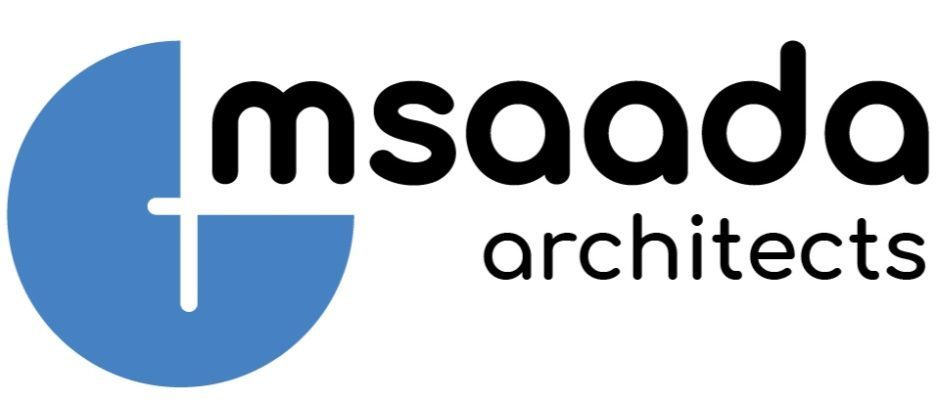
Msaada Development Agency
The Msaada development agency was established in England in 2005 to help the people of Rwanda to restore their dignity and their livelihoods that were destroyed during the horrific genocide in 1994 by establishing self-help income-generating projects. It funds agricultural projects that assist widows and orphans of the genocide to become self-sufficient. Msaada supports profit-making projects run by the Rwandans themselves, that fund a range of physical and psychological care and legal advice to widows and orphans still suffering from injustice and trauma after the dreadful events of 1994, and, primary, secondary, vocational, and university education for children who were orphaned by the genocide and who have no means of support.
Msaada involves the people themselves in solving their own problems and is guided by their capacity, skills, experience, and vision. Msaada enables families to make their own decisions on rebuilding their lives and in their fight for justice and against crushing poverty. Through Msaada’s school’s exchange program, they encourage understanding and co-operation between the youth of the UK and Rwanda, as well as raising awareness among communities in the UK of the evils of genocide and how they can assist those who have suffered it to overcome the dreadful consequences.
Msaada works with local organizations, AVEGA, a self-help widows’ and orphans’ association, and SURF, the Survivors’ Fund. Msaada’s Projects include The Subiruseke Vocational Training Centre. The charity funds the school to rehabilitate four widows’ homes each year that are in a poor condition. The trainees gain invaluable practical building experience. Msaada has also funded a youth recreational center at the school.
Msaada supports over 70 students with bursaries to attend The Excel Bilingual School, a local initiative, started by parents and teachers, to provide quality education with the emphasis on a high standard of English and French, to all the children of the Kigabiro Sector, without reference to ethnicity. Msaada is assisting over 100 young people to attend local state primary and secondary school. Msaada has paid for the construction of a science laboratory at Rwamagana Secondary School to improve the quality of education available to students there. The laboratory, while basic by Western standards, is the most modern facility of its kind in Rwandan schools. Msaada has also paid for audiovisual equipment at the school to enhance the educational experience.
Msaada assists with the running of a computer training center for young people to improve their computing skills at AVEGA Est. The Count D’Angerville Honeybee Project provides some 60 families in Nyarabuye with beehives to enable them to earn an income from the production of honey and wax. The project provides families with modern high-yielding hives which produce some 35kg of honey a year each. As well as providing
vitally important income, the bees also pollinate surrounding plants and crops increasing the yield for the entire community. Following the genocide, thousands of elderly people were left without any family, with horrific injuries, and unable to fend for themselves. Following heartrending pleas from AVEGA, Msaada agreed to provide the funds to sustain a number of these elderly disabled.
What people are saying about Msaada:
“I commend you on the outstanding work being done by Msaada. It may seem a drop in the ocean in a situation where there is great need but to those who benefit, your help is a Godsend.”– Archbishop Desmond Tutu
“Msaada’s extraordinary work is bringing a life-force of hope and stability to one of the most damaged societies on Earth. I give them all my admiration and support.” – Joanna Lumley, Actress
“We who care about what happened in Rwanda in 1994 owe it to those unfortunate people to let them know that some of us are willing to share their pain and to do something meaningful to help address it.” – Fergal Keane, Msaada founder
For more information, please contact:-
Msaada Development Agency
Website: www.msaada.org
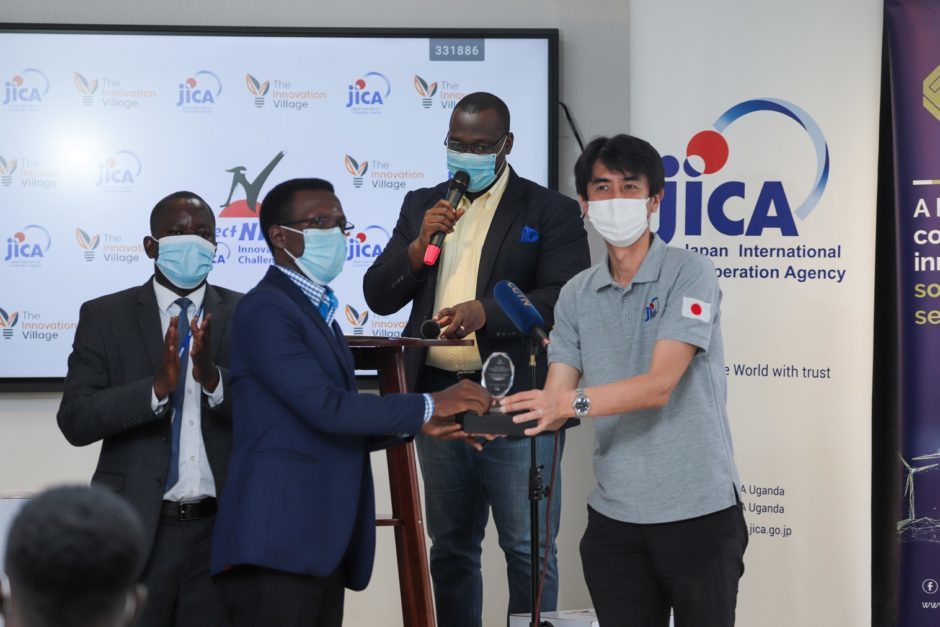
Japanese Volunteer brings Innovation to Kibungo Cooperative
Mr. Noguchi, who has learned to speak in fluent Kinyarwanda, said: “They accepted me and welcomed me. I’m very glad to meet them and work here.” The Covepaki workshop, which doubles as the showroom, is a beehive of activity with artists, tailors, basket weavers, sign makers, and others working side by side. On show are the usual traditional and popular Rwandan baskets (Agaseke), traditional bracelets, chairs, pictures, and other ornamental pieces. When Mr.Noguchi arrived nearly two years ago he said he could see that the Covepaki team were very experienced at what they do, but he decided to take on the challenge of seeing if they could develop new products, using their existing skills and materials, to find a new niche in the market not yet filled by other cooperatives. At his initiative, Covepaki began printing brightly colored t-shirts, sourced from Tanzania, with
words in Kinyarwanda, such as ‘Amakuru?’ (how are you?), which are sold at the workshop and at Republika Restaurant in Kiyovu, Kigali.
Last year Mr. Noguchi also mooted the idea of making modern, simple box-shape lamps. He noted that in Japan there was a market for ethnic-style lamps and realized they could make something similar for sale on the Rwandan market. He said: “They have the skills in the cooperative and so I thought this is possible.” He and his colleagues at Covepaki have been experimenting with the technique and think they now have it down pat. They make the lampshades from banana fiber, which is pounded in a mortar, washed, and sun-dried. The frames are made from locally sourced bamboo and put together by local artists skilled with the material. The lighting fixture is made by Mr. Noguchi himself, from electrical items he can purchase easily in Kibungo.
This new line of lamps will be among the artistic products Covepaki will exhibit at the International trade fair to be held at the show grounds in Gikondo in Kigali from 26 August to 6 September this year. The second challenge Mr. Noguchi faced was to help the cooperative access new markets, as the cooperative relied, mainly on local sales and passing trade. He has worked hard to find new outlets despite tough competition from many other Rwandan cooperatives producing similar items for sale. He was particularly pleased to have secured space in the Akagera Game Lodge shop in December 2009 where Covepaki now regularly sells products to tourists giving them an additional regular but modest income. Mr. Noguchi is still looking hard for other markets, such as in Kigali’s supermarkets. And he said: “We need to secure space in other hotels to increase our sales.”
Despite some successes, Mr. Noguchi admits that it has been a struggle to make some of his ideas work. It has also not been simple for him to win over the active participation of cooperative members in his ideas. For example, it took the cooperative eight months to make the first lampshade. Ms. Cecile Mukamusoni, Covepaki’s accountant, said each member earns a profit of 50,000 Rwf from sales every month, which is a decent income for people living in the countryside. She commended Mr. Noguchi for helping Covepaki by teaching members customer care skills, developing new products, and finding markets for products.
He is happy to have achieved some advances for the cooperative members, but nonetheless, he wishes he could have achieved more during his time in Kibungo. Mr. Noguchi will return home to Japan in September this year and is excited about seeing his mother, sister and cat again. His experience as a volunteer has given the art history graduate, an appetite to buckle down to work, particularly in the business world. He wants to study business, work in Japan for a while to develop his skills, and then return to Rwanda to see if he can use his previous experience in the country with newly acquired business acumen to help develop small and medium enterprises.“This is my second country”, he said. “I took time to adapt, but somehow I have become Rwandan. “ Currently, 29 Japanese Volunteers are working in various fields such as education, rural development, and engineering in all the provinces of Rwanda through Japan International Cooperation Agency (JICA). The number of volunteers is expected to reach more than 40 by the beginning of 2011. For more information contact:
David Sekyanzi, Mobile: +250 783 161340 Japan International Cooperation Agency (JICA) Rwanda Office
Rwandese Hope and Future from Single Action of Japanese Volunteerism
Initiated by Ms. Chie Shimizu, a Japanese Overseas Cooperation Volunteer (JOCV) under a Japan International Cooperation Agency (JICA) scheme, and the village’s only foreign resident, the project brings together a group of eight Rwandese – men, women, youth, and adults – once every two weeks to locally produce handmade soap and bring hope for brighter future for local villagers.
In a small open space behind a modest mud house surrounded by small vegetable gardens, eight members sit next to each other, cooling off heated oil to 45˚C. Pouring caustic soda into oil the members then take turns stirring the liquid and flavoring it with avocado until it becomes silky smooth. From buying the ingredients to cutting the soap, each phase in the process is handmade locally while Chie advises each step. Soap making is physical work requiring detailed attention to temperature and sensitive touch. Yet, during the process, cheerful laughs and smiles resonate throughout the village. How can one individual outsider become part of a small local village while building trust among local Rwandese and mobilizing the community
towards a common goal?
Chie explains, “I made the flyer in Kinyarwanda to announce my concept of soap making and called for first members to work with. I made it clear in the first place that I would share my idea of an alternative income activity, not give away money.” Each member who signed onto the project first donated 500 RWFs to start up their own activities, with Chie providing them with an additional 2000 RWFs as a loan. The loans were paid off in two months, and the group is now making profits and improving their everyday lives.
Chie is advising the group’s activities and is gradually leaving her leadership role to them. Not everything, however, went smoothly. Chie confesses, “First, we tried soap making with a recipe from Japan. But of course, it did not work well. The types and quality of ingredients such as oil we can find here are different from those in Japan. A foreign recipe and local ingredients simply did not match well. So we started all over again, with a local recipe and local ingredients.” The improved handmade soap is receiving good feedback. Asked why she joined a soap-making project initiated by someone she never met, Ms. Uwera SaÜda a school teacher and mother of five children, replied, “The flyer was well made and Chie’s idea of providing a way forward for a better life, and not simply making money, gave us dignity as equal humans and partners. We do not need sympathy. We need work to improve our lives.” The group of eight locals empowered by this simple act now has hope and a future plan. By officially forming a cooperative, they hope to expand their production, reaching the wider market at a sector and district level to eventually include Kigali city. Their soap making now has roots
in their local ground, is growing leaves and vines, and is uniting people from different backgrounds to bring
the hope and a brighter future.
Approximately 22 JOCVs are now actively engaged in volunteer activities with local communities in Rwanda, sharing their experiences and skills with local Rwandese towards improving and enriching their lives. More Japanese volunteers will join them in the coming years to follow their path. They will leave a legacy of Japan’s skills, experiences, and friendship to the people of Rwanda, leading to their sustainable socio-economic development.
For more information contact: Kayo Yamada, Mobile: +2502525510 3487
Japan International Cooperation Agency (JICA)
Rwanda Office
Project Rwanda
Cycling is a sport of second chances. This is the embodying principle of Project Rwanda, a program that brings specially designed bikes to serve the farming and transportation needs of a nation on the mend from civil war and genocide that claimed 1 million lives.
Project Rwanda Mission Statement
Project Rwanda is committed to furthering the economic development of Rwanda through initiatives based on the bicycle as a tool and symbol of hope. Our goal is to use the bike to help boost the Rwandan economy as well as to re-brand Rwanda as a beautiful and safe place to do business and visit freely.
“Everyone deserves a second chance,” said Tom Ritchey, founder of Ritchey Design and the driving force behind Project Rwanda. “That’s what we’re hoping to do at Project Rwanda.” Ritchey founded Project Rwanda after visiting the country in 2005. As the manufacturer of top-of-the-line cycling components and renowned as one of the inventors of the mountain bike, Ritchey was attracted to Rwanda’s mountains and the country’s scenic terrain. Tom’s trip resulted in a realization that the bicycle can be an important tool in rebuilding a country, instilling national pride, and addressing transportation issues facing Rwanda and other African nations.
A nation of stunning beauty but lacking in natural resources, the high elevation of Rwanda makes coffee their first viable export commodity. Rwandan coffee is unique. It is grown on a half million “coffee gardens”. These small family-owned farms contain about 200 coffee trees and have a tradition of cultivating old “heirloom” Bourbon coffee berries. As private vehicles are rare and truck transport is expensive and unreliable, most coffee is moved from the high mountain farms to lowland washing stations however humanly possible, including homemade wooden bicycles. Project Rwanda’s first undertaking was to build 2,000 special coffee-hauling bikes.
With Project Rwanda as a facilitator, consultant, designer, and advisor, the specially designed, load-bearing bicycle, referred to as the “coffee bike”, was born. The bike enables farmers to carry 200 kilograms of coffee to washing stations in one trip, twice the quantity is previously possible. Equipped with multiple gears (rare in Rwanda), the bike greatly shortens the duration of the trip from the farm to the washing station. The beans are much fresher upon delivery, garnering the farmer on average $0.15 more per pound. The higher premiums received can cover the cost of the bike. The bikes are sold to local farmers on credit at a minimum cost through a micro-financing program. During the off-season, the coffee bike provides transportation for the entire family and is often hired out as a bicycle taxi to generate additional income. With the help of USAID’s Project SPREAD and World Vision Finance, Project Rwanda has helped distribute 1,000 coffee bikes to farmers thus far. The coffee bike has not only given Rwandans an income boost but a means with which to pedal themselves out of poverty.
Project Rwanda also promotes the sale of Rwandan coffee to roasters and retailers around the world. They have partnered with Equal World Coffee to market Rwanda’s “Wooden Bike Coffee”.
Phase two of the project was to create a national professional cycling team dubbed Team Rwanda, coached by cycling legend and America’s first Tour de France competitor Jock Boyer. Jock’s victory at the 2006 Race Across America, a 3,000-mile ultra-distance endurance competition, placed him for a second time atop the podium. In 1985 he was the first “rookie to win the RAAM”. This return to cycling at age 50 was a chance to demonstrate his natural talent and to help Team Rwanda fulfill its mission of rallying a nation and becoming a metaphor for a “New Rwanda”.
Boyer went to Rwanda to train and equip a national team. After a month of testing cyclists from all over the tiny country, Boyer narrowed the group to five: Abraham Ruhumuriza, Nathan Byukusengi, Nyandwi Uwase, Adrien Niyonshuti, and Rafiki Uwimana. These five had been competing locally, with a little coaching and riding outdated equipment, but Boyer saw the potential and raw talent they possessed. Within a month, they were on the road.
“The riders are the real story,” Boyer said. In the athletes of Team Rwanda, he is witnessing the rebirth of a nation with the unifying nature of the sport. “They have made their choice; either be destroyed by the past or enable it to bring them to a deeper understanding of the value of life and people they come in contact with every day. Tragedies will either make you a better person or a bitter person. It’s so evident which side of life they have chosen.”
After participation in several international, regional, and U.S. cycling competitions, and just seconds shy of qualifying for the 2008 Olympics, the riders of Team Rwanda have become local celebrities. They in turn are trying to give others the same opportunity they have received. All are coaching other cyclists, passing down their equipment and Boyer’s training tips.
Tour de France yellow jersey winner Alex Stieda rode portions of the 2007 Tour de France course to raise awareness for the campaign. Many of cycling’s luminaries such as Dr. Eric Heiden, Max Testa, and Thomas Frischnecht are donating their time and talent to help Team Rwanda evaluate their goals and to forward the cause and unique mission of Project Rwanda.
Another facet of Project Rwanda is using the bicycle as a tool to increase tourism in Rwanda. To showcase the capabilities and value of the coffee bike and the unifying power of Team Rwanda, Project Rwanda hosts an annual cycling event called the Wooden Bike Classic. The event features Team Rwanda plus amateur and professional cyclists from neighboring African countries, the United States, and Europe. The event markets the country to both leisure cyclists and competitive athletes. Race events are complemented by guided bike tours and other tourist options such as gorilla safaris, museum tours, and other sightseeing events.
“This event is an excellent opportunity for the cycling community to see the impact it can make on the people of Rwanda,” Ritchey added. “It will be, for much of the world, a first chance to see how powerful a second chance can be. Not just for Rwanda, for all of us.”
Ritchey also wants to develop bike manufacturing facilities in Rwanda so the country would not have to rely on cheaply made, overpriced imports. A Sister-Shop program is underway to help build local bike shops in Rwanda with funds raised by bike shops in the U.S. By creating an internal cycling infrastructure the project hopes to create a self-sustaining industry in which an impoverished nation can realize economic stability and growth.
Learn more about Project Rwanda at: ProjectRwanda.org
Read More
Rwanda Women’s Network
As a result of the 1994 genocide, Rwanda was left with a large number of widows and orphans; many of whom had suffered the worst inhumanities ranging from rape to torture. For these survivors, their social and psychological scars were coupled with having no financial support in their new roles as heads of households, often caring for a number of orphans in addition to their own children. With limited or no technical skills, education, or access to financial resources, despair and depression became dominant forces in their lives. Coupled with this was the culture of silence and stigma directed towards these vulnerable groups.
Rwanda Women Network (RWN) is an NGO that has worked in Rwanda since 1997 to directly address the situation described above. RWN was established with the mission to work towards the promotion and improvement of the socio-economic welfare of women in Rwanda through enhancing their efforts to meet their basic needs.
The organization’s objectives include:
To economically empower poor women and widows in the rural and urban areas;
To foster economic and social growth within households and communities;
To improve the health status of widows and orphans;
To promote peace and reconciliation.
Rwanda Women Network implements four core programs:
Health-Care
The RWN health-care program is implemented through the Polyclinic of Hope (PoH), located in Nyamirambo, and its three replications; The Village of Hope, in Kagugu, PoH Bugesera, and PoH Huye. Adopting a holistic approach to cater to women survivors of the genocide, and their families, the program empowers them through varied projects on sexual and reproductive health, sexual and gender-based sexual violence, primary health care, shelter construction and rehabilitation, HIV/AIDS prevention, care, and support.
Education and Raising Awareness
Education and Awareness-raising is an all-encompassing activity that includes education on legal and human rights, HIV/AIDS, sexual and gender-based violence, and reproductive health. RWN’s success in this area are many, women who received training in legal and human rights issues have been empowered to actively take part in the community court, Gacaca, some even acting as judges. Many partners have taken on the responsibility of caring for those affected and infected with HIV/AIDS in their communities. RWN facilitates training in areas such as palliative care and OVC support which enable these groups to effectively help their fellow neighbors.
Socio-Economic Empowerment
RWN recognizes that women if they are to sustainably meet their specific basic needs, must be economically empowered. RWN enables women to obtain a sense of security and a hopeful future by facilitating access to financial credit, for the development of income-generating activities. Basket weaving, agriculture, tailoring, shoemaking, and small kiosks are just a few examples of the income-generating activities undertaken by women.
Networking and Advocacy
Networking and advocacy are essential in broadening the reach and effectiveness of RWN’s programs, as well as promoting community dialogue with local authorities and policymakers. RWN works with its community partners to promote linkages between them and other key organizations/institutions at the national, regional, and international levels. Through these linkages, RWN and its partners gain learning opportunities, networking, solidarity building, and the establishment of working relationships.
RWN, with its various achievements through its community-based programs, has gained wide recognition as a model in community development that can be replicated globally.
For more information contact us at
+250 -583662, rwawnet@rwanda1.com or visit our website www.rwandawomennetwork.org
Nissan Tiida Vehicle
Specifications
Nissan Tiida – Hatchback – 5 speed manual
1600cc, 16 valve, 4 cyl. Inline DOHC (Double overhead cams)
Electronic fuel injection
List price: 28000 US $ (49,000,000/= UGX)
Supplier – Motorcare Uganda Limited / Nissan Kampala
The new Nissan Tiida which launched last month in Uganda is one of the new Nissan models coming into the country. I was given the opportunity to test drive one of the models, courtesy of Motorcare Uganda Limited.
I drove the vehicle for two days and covered around 25km. I would have preferred to have taken the car for a long drive and perhaps even on a track to get a better understanding of the handling capabilities under pressure, but the roads in Uganda are not really conducive to giving a car the full road test.
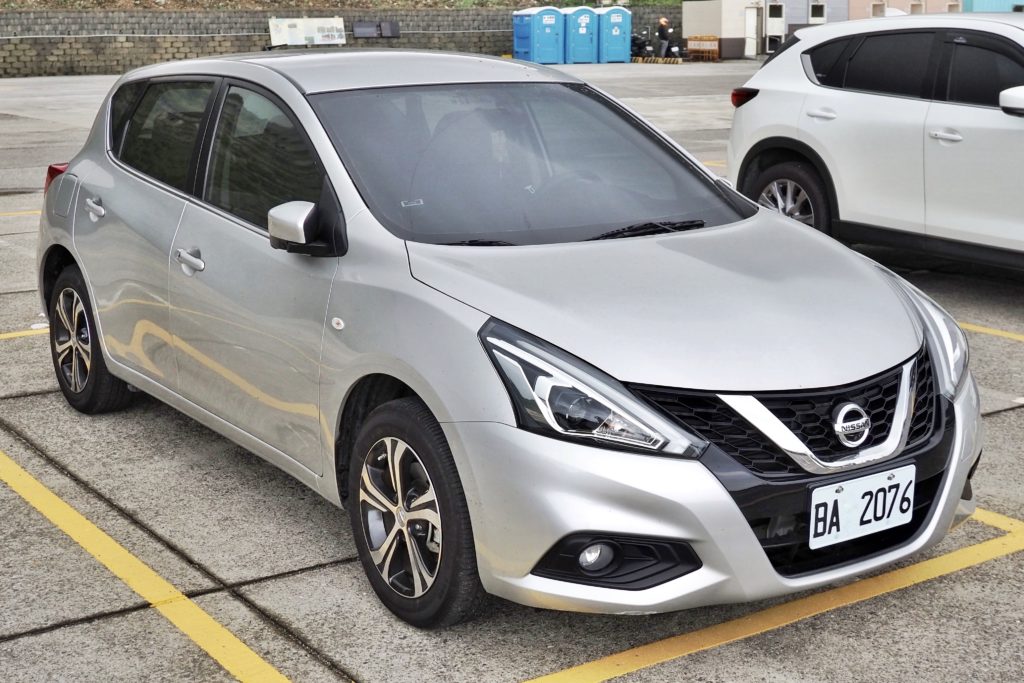
OLYMPUS DIGITAL CAMERA
Overall Impressions
The car is a pleasure to drive. It is zippy and responds well to hard acceleration, holds the road, and seems like a well-built car. The interior is much bigger than I anticipated and there is lots of room for the driver (see more below). It handles fairly well and the brakes are responsive. I accelerated hard up to 100 Km per hour, then braked sharply, to test stopping ability and the car maintained a straight line and braked firmly. Airbags are standard for passengers and drivers, an excellent safety feature.
Comfort and Styling
The Nissan Tiida is a sexy car. It reminds me very much of Renault, which is most likely a result of Renault’s ownership of Nissan. It attracted a lot of attention, with many people stopping by to take a look inside and asking for a ride.
The overall design is sleek, with soft rounded edges. The color combo of the test car had a black exterior with a beige interior. The seats were cloth, and the inside dash trim was black. The dials are well placed and easy to read.
The car is comfy and roomy inside. It also has the unique feature of a moveable rear seat, backward and forwards (to increase rear boot space), plus it has a reclining feature on the rear seats. When the seats are in a full backward position, the inside is big enough for four adults. However, the rear boot space is tiny – no golf clubs. This feature does allow the seats to be moved right forward to maximize the boot space.
There is loads of storage space in the interior with compartments and storage spaces everywhere, a great feature. The steering also adjusts up or down, to suit individual preferences.
Specific Likes
• The dashboard lights come on whenever the key is inserted into the ignition and are not dependent on the lights being on.
• The zippy handling and acceleration.
• The comfort of driving a sedan on Ugandan roads (Strangely, sedans seem to handle the bumps and holes much better than my truck).
• A good sound system.
• The styling of the interior and dash set-up is easy to navigate without taking your eyes off the road.
• The ability of the rear seat to move to suit different conditions.
Specific dislikes
• No temperatures gauge – this really worried me.
• No mag wheels – the wheels with hubcaps were out of place.
• The boot space is small and would struggle to fit two sets of golf clubs or three large bags.
• The steering, although powered, felt stiffer than I expected and it seemed tighter than it should have been.
• The price to the average Ugandan would be high and would require some kind of packaged finance plan for purchases.
Specifications
Nissan Tiida – Hatchback – 5-speed manual
1600cc, 16 valve, 4 cyl. Inline DOHC
(Double overhead cams)
Electronic fuel injection
List price: 28000 US $ (49,000,000/= UGX)
Supplier – Motorcare Uganda Limited / Nissan Kampala
For more information on the
New Nissan TIIDA please contact:
Motorcare Uganda Limited.
Plot 95 Jinja Road, Kampala.
Tel: 0312 238100
Website:www.Nissan.ug
Buses in Rwanda
Atraco Express, Rue Mont Kibuye.
Gaso Bus Company, Nyabugogo Taxi Park.
Jaguar Bus Company, Avenue de La Paix,
Tel:+250 08614838
Ontracom Express, Nyamirambo Street,
Tel: +250 571241
Regional Coaches: Nyabugogo Taxi Park,
Tel: +250 575963.
Stella Express, Rue Mont Kibuye.
Trans Express 2000, Rue Mont Kibuye.
Venus Travel s.a.r.l., Avenue de la Justice,
Tel: +250 87752, Fax: +250 570304
Virunga Express, Rue du Lac Rwero,
Tel: +250 08431960/08510873
Volcanoes, Rue Mont Kibuye
Read More